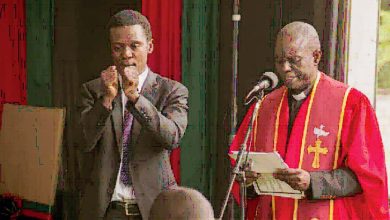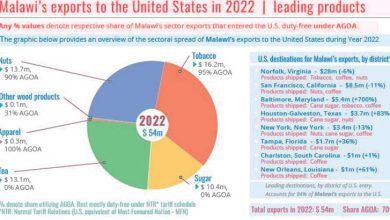Malawi’s great democratic disconnect
The 2018 Population and Housing Census indicates that Malawi’s youth constitute over half of the population.
According to the National Youth Policy, youth are defined as individuals between the age of 18 and 35.

But despite being in their large numbers, the youth—who are key actors and priority participants of Malawi’s long-term development agenda, Malawi 2063 (MW2063)—they remain less active in democratic processes.
From failing to vote in an election to failing to hold duty-bearers accountable on issues directly affecting them, the youth’s failure to actively participate in democratic processes has potential to disadvantage realisation of MW2063.
Essentially, MW2063 aims at transforming Malawi into a wealthy and self−reliant nation by 2063.
This also means Malawi’s youth are less effective in contributing to the realisation of the African Union’s Agenda 2063 which puts the youth at the core of the agenda, which aims to transform the continent into a globally competitive and influential force.
But what are the contributing factors?
Disillusionment and distrust in democratic institutions, economic hardships and lack of civic education are some of the observed barriers.
“If they [youth] are not engaged meaningfully in democratic processes, our democracy remains fragile and incomplete. The youth are not just voters, or protesters; they are nation-builders and it is high time systems reflect that,” says Jescar Mponda.
Jescar says even when the youth are included in political spaces, it is just symbolic; which leads to frustration and further disengagement.
She says: “The youth are too busy trying to survive. High unemployment, poverty and limited access to resources mean many youths are focused on day-to-day survival. Democracy feels like a luxury when basic needs are unmet.”
Jescar says youths will only be motivated to participate in democratic processes when they see that their voices matter and lead to action, including creation of safe spaces where they will be able to effectively dialogue.
She also says youths will be motivated if political parties actively mentor and support youthful candidates as well as appointing them in decision−making roles instead of mere political party wings.
Youths who took part in an Afrobarometer survey whose results were presented in country scorecards released in June 2025 show that 60 percent said they voted in the previous election as compared to 85 percent of people above the age of 35.
The scorecards show that five percent of the youth interviewed in the survey said they participated in protests as compared to four percent of individuals above the age range of the youth.
According to the scorecards, 46 percent of youth said they made an effort to contact a traditional leader as compared to 63 percent of individuals aged 35 and above while 14 percent of youth said they once contacted a member of Parliament as compared to 16 percent of elders.
Similarly, 18 percent of youth indicated to have once contacted a councillor as compared to 22 percent of elders. The scorecards further show that 75 percent of youth joined with others to raise an issue as compared to 80 percent of the former.
While 57 percent of youth said they feel close to a political party as compared to 64 percent of individuals above the youth age range with 66 percent of youth attending a community meeting as compared to 70 percent of the latter.
Tionge Mtambo, a teacher by profession and an advocate for women’s rights, says many youths feel disconnected from political systems that seem to recycle the same promises without delivering tangible change.
“Over time, this leads to apathy, where the youth lose faith in the impact of their voice and their vote. They often ask: “Why participate when nothing ever changes?” she says.
“Another key issue is the lack of civic education. Many young people are simply not exposed to the information and skills they need to understand how democratic systems work, or how they can actively participate beyond just voting.”
Tionge states that without this foundation, engagement remains low, especially in rural areas where access to information is even more limited.
To reverse this trend, she says there is a need to make deliberate efforts to rebuild trust between youths and democratic institutions.
Tionge says: “This starts with consistent and accessible civic education, both in schools and in communities. We also need to create safe, inclusive platforms where youth can express their views, propose solutions, and take part in real decision-making, beyond being used for numbers or appearances during elections.”
She says youths are ready to lead, echoing youth-led non-governmental organisation Youth and Society’s (YAS) 2025 Malawi Independence Day celebrations message.
In the message, YAS executive director Charles Kajoloweka said it is only right for youths to lead Malawi’s next chapter—61 years after Malawi attained independence from British colonial rule.
“The youth are not asking to be included as tokens; they are ready to lead. They are building businesses, shaping new ideas, standing up for justice and no longer content with waiting in the wings of a nation that should already be theirs,” he said.
“To our youth, do not let cynicism take root. This country needs your energy, your ideas and your courage. We must fight for a better country. Young people are demanding fair opportunity, no hand-outs. They do not wish to replace one elite group with another but a Malawi that works for everyone.”
The 2024−2029 Malawi National Action Plan on Youth, Peace and Security states that it recognises Malawi’s youth composition and how important they are on issues pertaining to conflict prevention, resolution, management and peace-building.
Reads the policy document: “The National Action Plan also aligns harmoniously with the overarching development framework of Malawi Vision 2063. To realise this vision, it is essential to harness the potential and energy of the youth by recognising and prioritising the youth as key stakeholders in conflict prevention, resolution and peace−building efforts.”
Chimwemwe Banda—a youth and women’s rights advocate, says youths will always remain important in the development of any nation, considering their creativity and innovation.
This, she says, is enough reason why they need to be empowered and take up leading roles in society.
“Youths feel unrepresented. For instance, if you look at their representation at council level, the area development committees and village development committees, there is no youth representation yet these are the strategic societal forums youth need to have a say,” she says.
“If decision-making spaces such as these incorporate youths then things can work and youth participation would be given a boost in Malawi and play an integral role in development.”
She says there is a need for targeted campaigns towards youth to motivate them as regards participation, including inclusive engagement platforms that can play a key role in giving youths a voice.
Besides, she says youth-led initiatives can also raise the bar in regards to youth involvement in democratic processes. She says youth organisations also need to be ably assisted by State and non-State entities both financially and materially.
She says: “Youth organisations struggle to receive financial assistance and this is also one contributing factor to the problem at hand. Only if youth-led organisations are fully supported can we be talking of something different and positive.”
The 2025-2030 Malawi Youth Manifesto attempts to fill in the youth’s participation gap in all democratic sectors, among others, economy, education, skills development, digital transformation, climate action and governance reform.
Reads the manifesto: “Through this manifesto, we reaffirm our unwavering commitment to ensuring that youth voices are not only heard, but translated into meaningful policy and lasting impact.
“To all young people across Malawi; this is your moment. Organise, mobilise and engage. Step into the political and policy arenas that define our future.
“And to political leaders, public institutions, development partners and civil society, recognise young people as essential allies in development. Work with us—not for us—to turn these aspirations into reality.”
The 36-page manifesto states that the road ahead requires courage and unity with a shared sense of purpose among the youth. The manifesto encourages youths to rise to the challenge of leadership.
It also encourages youths to organise themselves into strong networks and movements that demand transparent, accountable and youth-inclusive governance.
“This 2025-2030 youth manifesto represents the collective aspirations and commitments of Malawian youth. We call upon all stakeholders−government, political parties, civil society, the private sector and development partners—to actively support its implementation,” reads the manifesto.
“Investing in the youth agenda is investing in Malawi’s future—a future defined by democratic governance, patriotism, socio-economic transformation and sustainable development. The time for action is now. Together, we can build a Malawi where young people are empowered, included and lead.”
President Lazarus Chakwera on July 21 2025 endorsed the youth manifesto at Kamuzu Palace in Lilongwe.
Chakwera said he is fully committed to fully supporting the youth manifesto to ensure youth are fully empowered.
The President said: “I commit to support this manifesto to ensure that our youth realise their great potential.”





